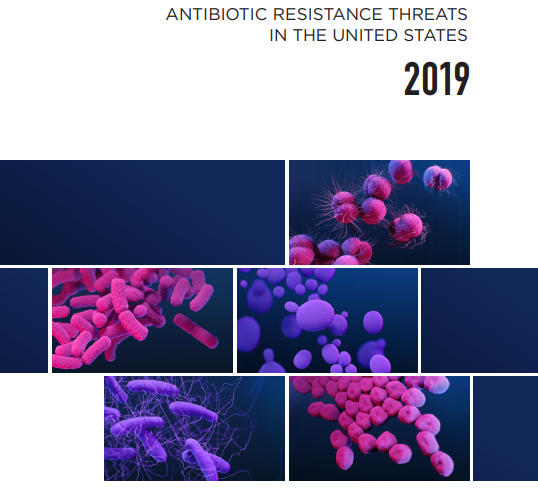Building on Progress in AMR

Did you know that in the United States alone someone gets an antibiotic-resistant infection every 11 seconds, and every 15 minutes someone dies as a result? That means people are dying of infections that are no longer responding to the drugs designed to kill them. This new data comes from CDC’s recently released Antibiotic Resistance Threats in the United States, 2019 showing that antibiotic-resistant pathogens are causing more than 2.8 million infections and 35,000 deaths across the U.S.
As the report shows, too many people are still affected by resistant infections, many of which are preventable. The world can do more to prevent these infections and to stop the spread of pathogens across healthcare, the food supply, and communities. However, we are also seeing promising successes, emphasizing that the strategies we are using today are working. Since 2013, prevention efforts have reduced deaths from antibiotic-resistant infections by 18% overall and by nearly 30% in hospitals. In the community, rapid detection and prevention strategies such as vaccines have helped protect people from germs such as Streptococcus pneumoniae.
We need to build on this progress and continue replicating successful strategies in the United States and around the world. Specifically, we need greater implementation of programs for preventing infections and antibiotic use. We also need more innovation to identify new prevention strategies To address antibiotic resistance as well as investing in new drugs and treatment alternatives.
We know that we cannot do this alone. That is why during the past year, CDC partnered with more than 350 organizations through the Antimicrobial Resistance (AMR) Challenge to address the very threats highlighted in the 2019 report. Through the Challenge, these partners committed to action from 33 countries around the world, potentially impacting more than 2.8 billion people. Nearly half of these commitments focused on improving infection prevention and control or improving how we use antibiotics in human and animal medicine.
CDC will continue to partner with institutions around the world in innovative research across the One Health spectrum. To date, CDC has invested nearly $110 million in nearly 160 innovation research projects to add to our knowledge base about this global threat and help to address its spread.
We know that our partners around the world are working hard to address this issue and we will continue to lead the way alongside you. Antibiotic resistance affects us all and we have more work to do.
Michael Craig is Senior Advisor for Antibiotic Resistance, CDC.




